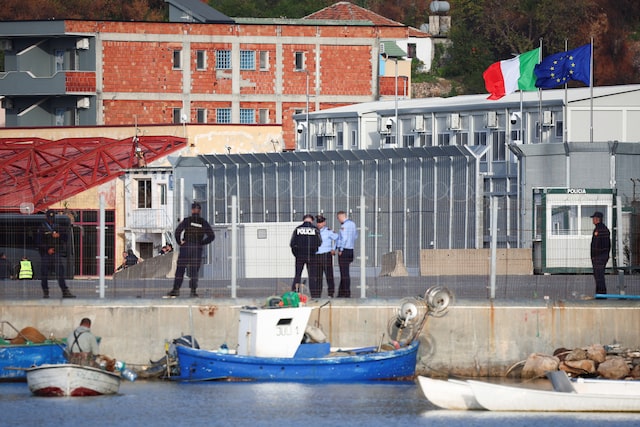Italy’s plan to process asylum seekers in camps built in Albania has suffered a big setback. The European Court of Justice (ECJ) has ruled that the plan may not follow EU law. This decision is seen as a major blow to Italian Prime Minister Giorgia Meloni’s efforts to manage irregular migration by sending people to another country.
The court found problems with how Italy decides which countries are “safe” for deporting migrants. Italy had labeled Bangladesh as safe, which allowed them to quickly reject asylum requests from two men rescued at sea and sent to Albania. But the court said such decisions must follow strict legal steps. These include being open about the evidence used and allowing people to challenge it.
A lawyer for one of the men said the government’s plan has now collapsed. The Albanian camps, which were supposed to hold migrants during asylum processing, have mostly been empty for months due to legal problems. A report also showed that building the camps in Albania cost seven times more than building similar ones in Italy.
The court added that while EU countries can make their own list of “safe” countries, they must follow fair rules. The Italian court involved in the case could not see any proof for why Bangladesh was called safe. This lack of transparency helped lead to the ECJ’s ruling.
The judges also made it clear that a country cannot be called safe if it does not protect all parts of its population equally. This supports concerns raised last year in Italy that some people in these so-called “safe” countries still face real dangers.
Prime Minister Meloni’s office said it was shocked by the ruling. It claimed the decision would make it harder to control illegal immigration and protect Italy’s borders. Her office also warned that judges could now block government actions too easily, making it harder for lawmakers and ministers to do their jobs.
Meloni had promoted the Albania plan as a bold way to handle migrant arrivals. Some other European countries were watching closely to see if it would work. But now, with the EU court’s ruling, the future of this plan looks very uncertain.

